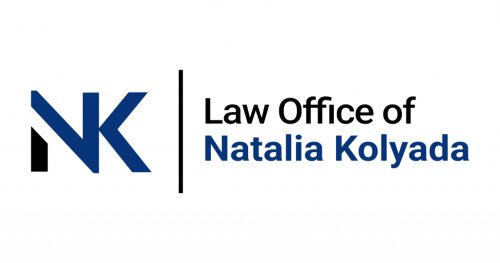Best Communications & Media Law Lawyers in Boston
Share your needs with us, get contacted by law firms.
Free. Takes 2 min.
List of the best lawyers in Boston, United States
About Communications & Media Law in Boston, United States:
Communications & Media Law in Boston, United States involves regulations and laws that govern the creation, distribution, and consumption of media content, including television, radio, newspapers, and online platforms. These laws cover a wide range of issues such as freedom of speech, defamation, privacy, intellectual property rights, and licensing requirements. Legal disputes in this field can arise from issues like copyright infringement, libel, and censorship.
Why You May Need a Lawyer:
You may need a lawyer specializing in Communications & Media Law in Boston if you are facing a defamation lawsuit, need assistance with licensing agreements, are accused of copyright infringement, or have questions regarding freedom of speech rights. A lawyer can help you navigate complex regulations, protect your intellectual property, and ensure compliance with local laws.
Local Laws Overview:
In Boston, United States, Communications & Media Law is governed by both federal and state laws. Key aspects of local laws that are particularly relevant to this field include the First Amendment of the U.S. Constitution, which guarantees freedom of speech, and Massachusetts state laws regarding defamation, privacy rights, and intellectual property rights.
Frequently Asked Questions:
1. What is defamation?
Defamation is the act of making false statements about someone that harm their reputation. It can be classified as either libel (written defamation) or slander (spoken defamation).
2. How do I protect my intellectual property rights in Boston?
You can protect your intellectual property rights in Boston by registering trademarks, copyrights, and patents for your creative works.
3. Can I be sued for sharing someone else's content online?
Yes, sharing someone else's content online without permission may constitute copyright infringement, which can lead to legal action against you.
4. Are there restrictions on freedom of speech in Boston?
While the First Amendment guarantees freedom of speech, there are limitations such as obscenity, incitement to violence, and defamation.
5. What is the difference between privacy rights and freedom of information laws?
Privacy rights protect individuals from intrusion into their personal lives, while freedom of information laws allow access to government records and information.
6. How can I respond to a cease and desist letter regarding my content?
You should seek legal advice immediately to understand your rights and options for responding to a cease and desist letter regarding your content.
7. Can I be held liable for comments made by users on my website or social media platforms?
You may be held liable for user-generated content on your website or social media platforms if it violates the law or if you fail to take action to remove illegal content after being notified.
8. What is fair use in copyright law?
Fair use allows limited use of copyrighted material without permission for purposes such as criticism, commentary, news reporting, teaching, scholarship, or research.
9. How do I register a trademark in Boston?
You can register a trademark in Boston by filing an application with the United States Patent and Trademark Office (USPTO) or seeking assistance from a legal professional specializing in intellectual property law.
10. What should I do if my media content is plagiarized?
If your media content is plagiarized, you should gather evidence of the plagiarism and consult with a lawyer to explore your legal options for seeking compensation and protection of your intellectual property rights.
Additional Resources:
For more information on Communications & Media Law in Boston, United States, you can refer to resources such as the Massachusetts Bar Association, the Federal Communications Commission (FCC), and the Copyright Office.
Next Steps:
If you require legal assistance in Communications & Media Law in Boston, United States, it is recommended to contact a lawyer specializing in this field to discuss your specific situation and explore your options. You can search for reputable law firms or attorneys in Boston who have experience in handling cases related to media and communications law.
Lawzana helps you find the best lawyers and law firms in Boston through a curated and pre-screened list of qualified legal professionals. Our platform offers rankings and detailed profiles of attorneys and law firms, allowing you to compare based on practice areas, including Communications & Media Law, experience, and client feedback.
Each profile includes a description of the firm's areas of practice, client reviews, team members and partners, year of establishment, spoken languages, office locations, contact information, social media presence, and any published articles or resources. Most firms on our platform speak English and are experienced in both local and international legal matters.
Get a quote from top-rated law firms in Boston, United States — quickly, securely, and without unnecessary hassle.
Disclaimer:
The information provided on this page is for general informational purposes only and does not constitute legal advice. While we strive to ensure the accuracy and relevance of the content, legal information may change over time, and interpretations of the law can vary. You should always consult with a qualified legal professional for advice specific to your situation.
We disclaim all liability for actions taken or not taken based on the content of this page. If you believe any information is incorrect or outdated, please contact us, and we will review and update it where appropriate.









